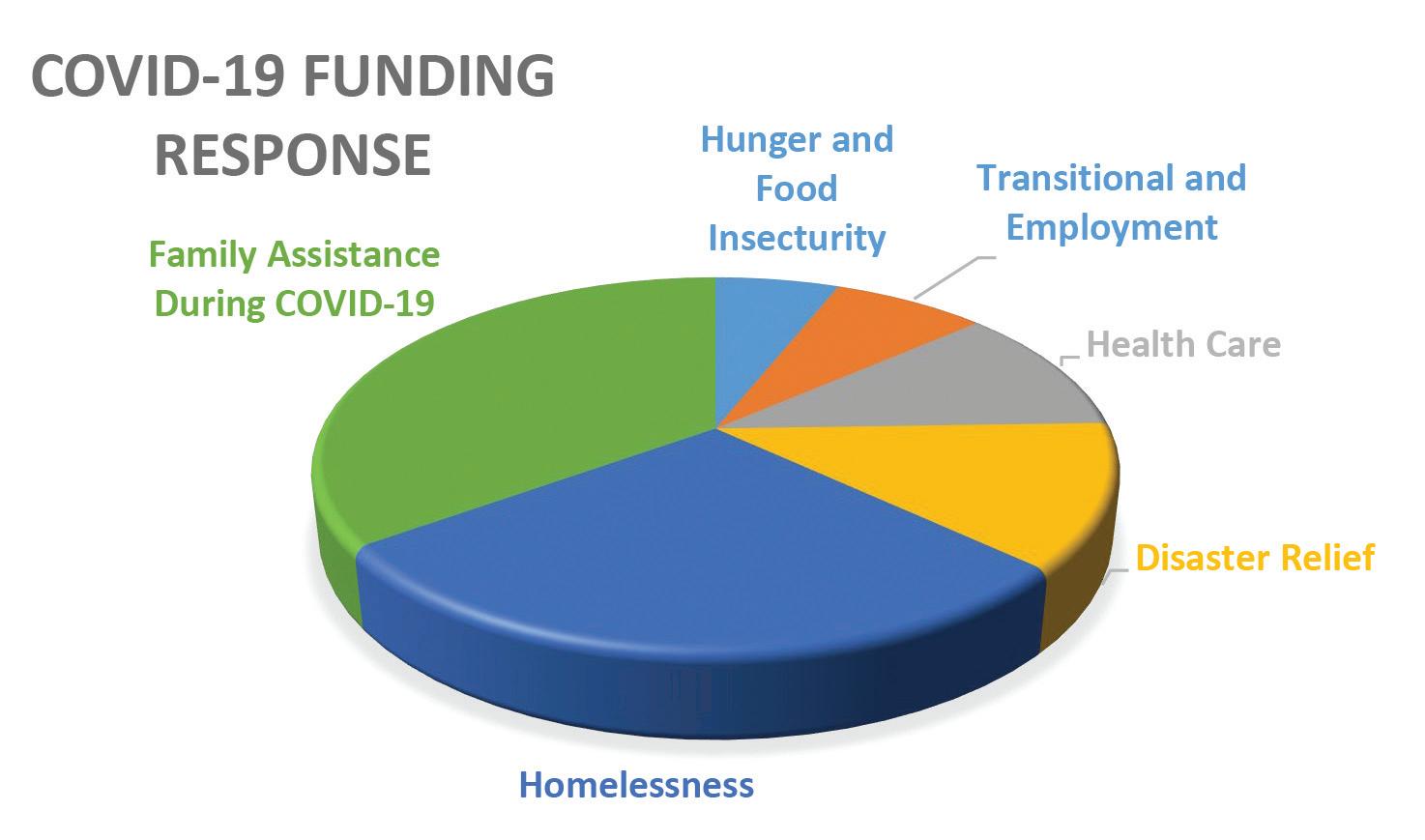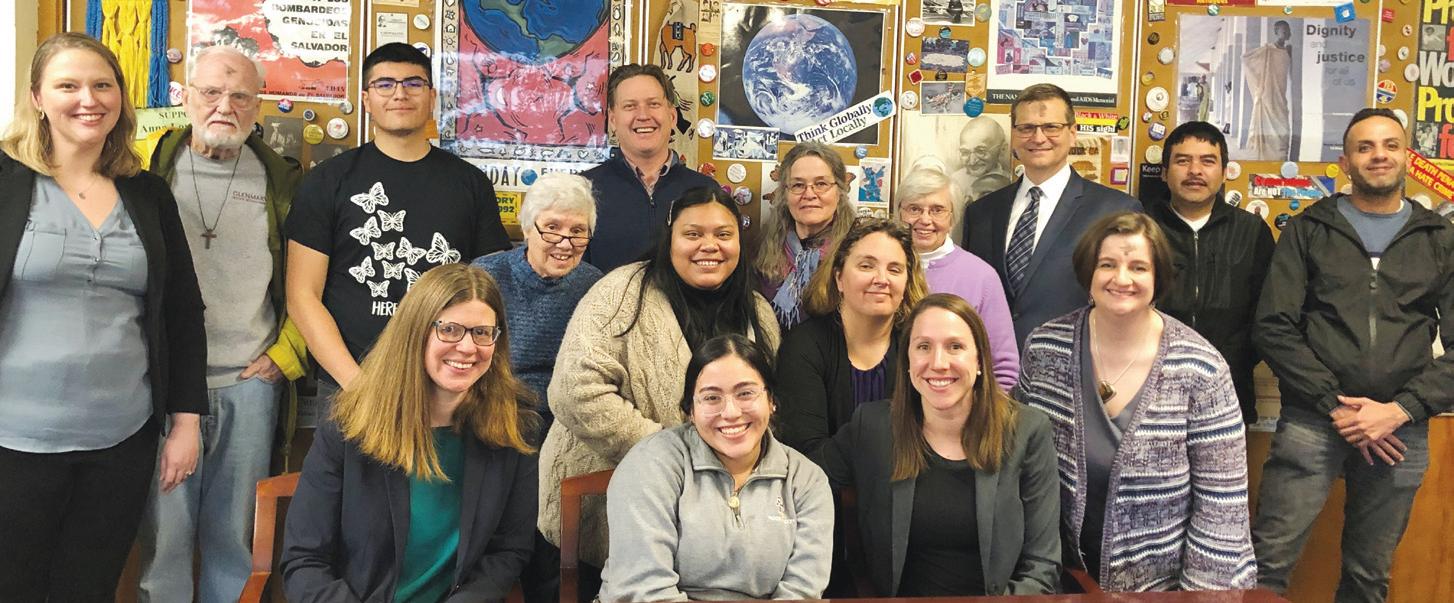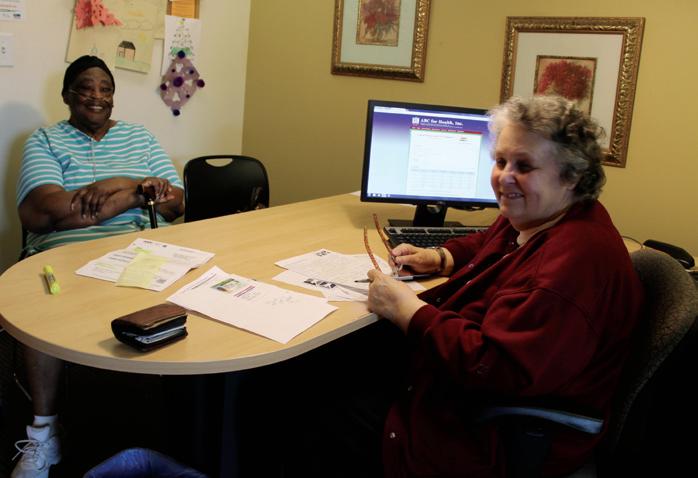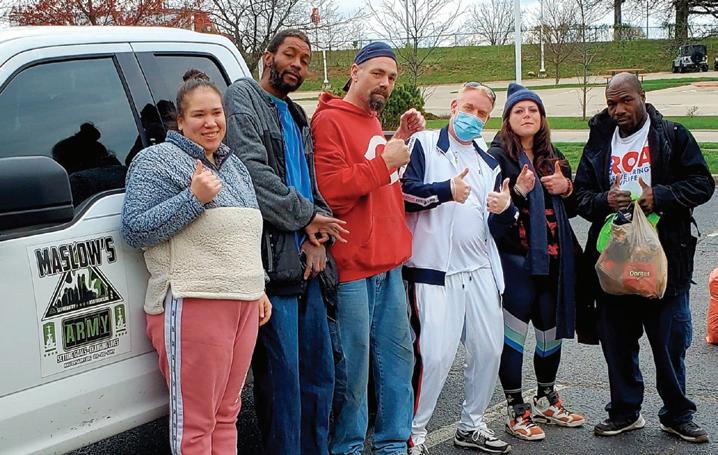
4 minute read
Social Justice Fund
Roses Blooming in Concrete: Social Justice during a Pandemic
By S. Marge Kloos
Advertisement
Signs of the times always point us toward seeds of hope. Blossoms of hope push through the harshest of realities when concerned humans join with one another to address the ravages of poverty, injustice, inequalities, and suffering.
As a partner, the Sisters of Charity of Cincinnati engage with organizations capable of improving the quality of life for the most impoverished and disenfranchised of our sisters and brothers. Partnerships leverage resources and potentially bring about much needed systemic change, making a crack through which blossoms of life can grow.
A Year of unique Challenges COVID-19’s unrelenting impact on those already struggling under the weight of poverty, racism, environmental degradation, and marginalization is undeniable. As a sign of the times, Americans have sadly witnessed first-hand the uncontrollable force of a disease that unfairly makes its way to the most vulnerable of our brothers and sisters.
nationally, the pandemic has magnified the disparities of health care access for brothers and sisters of color, bringing into focus racism’s egregious and pervasive consequences.
“For decades, Black people have been starved of the investments, the systems of care and quality environments that are needed for sustained, healthy growth and development as a people. For even a rose, as the writer nikki Giovanni reminds us, can
Family Assistance during COVID-19
Hunger and Food Insecurity
Transitional and Employment
bloom from the concrete, if we give it the resources, care and love it deserves,” reflects Jay Phillips, program officer for youth development in California.
Locally, the pandemic’s raging disregard for human life intersects with racism in indisputable ways. “The pandemic must be approached as an issue of public health,” acknowledging social disparities best understood through the lens of racism. The Sisters of Charity have joined our voice and resources with multiple other organizations, religious groups, and individuals to promote lasting systemic change in the Cincinnati community and beyond. Timeless Gospel Message: Option for Those Living in Poverty Empowerment has been the cornerstone of congregational outreach since Elizabeth Seton’s first inklings about her own faith and Jesus’ imperative for justice in the Gospel.
As Pope Francis has stated, “our response to the pandemic must be twofold: finding a cure for this small but terrible virus but also curing a larger virus, that of social injustice, inequality of opportunity, marginalization, and lack of protection for the weakest.”
Challenges for those struggling with poverty do not hibernate during a pandemic. During the year funding requests came from organizations and agencies that were on the front lines of COVID relief. This pandemic era has helped us all better understand the suffering and dilemmas posed especially for those living in poverty.
• Those living on the street are particularly vulnerable to the virus, dying at greater rates. These sisters and brothers are without adequate access to healthcare and must turn toward agencies operating with greatly reduced-service capacity. • The urgency for organizations providing housing for the homeless has shifted to crisis level as shelters scramble to accommodate physical distancing and adapt to safe service practices and priorities. • Food insecurity is accelerating among the already-struggling. Agencies providing food have needed more resources to accommodate the growing low-income earners seeking assistance. • Adding to this urgency, immediately following the stay-at-home orders, unemployment rose quickly and those living paycheck-to-paycheck continue to face eviction and uncertain futures, causing levels of psychological and spiritual distress to spike among the already-fragile.
After hearing from our partners in the field about the lack of resources to effectively address the impact of COVID-19, the ordinary funding criteria was adjusted for the fiscal year’s social justice funding cycle. (See the Response to COVID graphic.)
Moving into the next funding cycle, there will no doubt be new challenges during this difficult pandemic. So our criteria remains flexible enough to provide a caring response to those most in need. It is a time of great opportunity for the Sisters of Charity to partner with others, creating safety nets while empowering new opportunities for those trying to manage the day-to-day burden of poverty.
Pope Francis is calling all people of faith to go “beyond the bare necessities, walking together, allowing ourselves to be evangelized by those experiencing poverty, who know the suffering Christ well, letting ourselves be ‘infected’ by their experience of salvation, their wisdom, and creativity.”
As Elizabeth Seton and Margaret George before us, we will endeavor to care for those living on the margins of a society’s wealth “rooted in the virtues of faith, hope and love.” We are listening to our most vulnerable sisters and brothers with renewed commitment to resourcing and energizing the global movement of loving care necessary for the world’s healing.
A Few of Our Social Justice Partners

intercommunity Justice and Peace Center
Members of the Intercommunity Justice and Peace Center educate and advocate for peace, challenge unjust local, national and global systems and promote the creation of a nonviolent society. The organization focuses on the death penalty, immigration, human trafficking and peace and nonviolence.

Maslow’s army
During the course of the Covid-19 pandemic, Maslow’s Army sheltered more than 261 individuals, families, and veterans experiencing homelessness.

St. Vincent DePaul Society of Cincinnati
The organization provides 11 neighborhoodbased food pantries and emergency food closets; a Charitable Pharmacy (the only assistance pharmacy in Southwest Ohio dedicated to providing free medication); rent and utility assistance to prevent homelessness; access to clothing, furniture, and household items via seven thrift stores; and beds and other basic needs otherwise not available to those struggling with poverty.










